June 26, 2024 | 07:26 GMT +7
June 26, 2024 | 07:26 GMT +7
Hotline: 0913.378.918
June 26, 2024 | 07:26 GMT +7
Hotline: 0913.378.918
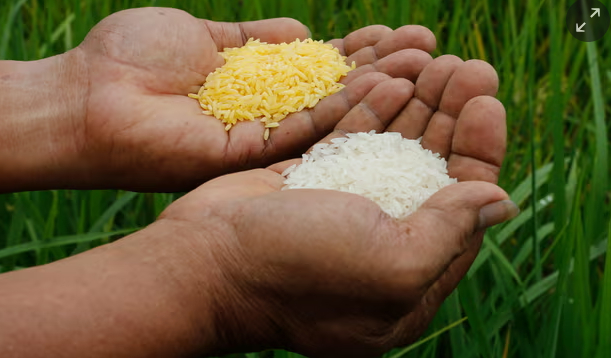
A scientists compares vitamin-A enriched Golden Rice and ordinary rice in Manila, the Philippines. Photograph: Erik de Castro/Reuters.
Scientists have warned that a court decision to block the growing of the genetically modified (GM) crop Golden Rice in the Philippines could have catastrophic consequences. Tens of thousands of children could die in the wake of the ruling, they argue.
The Philippines had become the first country – in 2021 – to approve the commercial cultivation of Golden Rice, which was developed to combat vitamin A deficiency, a major cause of disability and death among children in many parts of the world.
But campaigns by Greenpeace and local farmers last month persuaded the country’s court of appeal to overturn that approval and to revoke this. The groups had argued that Golden Rice had not been shown to be safe and the claim was backed by the court, a decision that was hailed as “a monumental win” by Greenpeace.
Many scientists, however, say there is no evidence that Golden Rice is in any way dangerous. More to the point, they argue that it is a lifesaver.
“The court’s decision is a catastrophe,” said Professor Matin Qaim, of Bonn University, and a member of the Golden Rice Humanitarian Board, which promotes the introduction of the crop. “It goes completely against the science, which has found no evidence of any risk associated with Golden Rice, and will result in thousands and thousands of children dying.”
The decision is to be challenged by the Philippines government and agriculture experts say it is likely it will be overturned some time in the near future. But the setback is still likely to have profound impacts. Other countries such as India and Bangladesh – where vitamin A deficiency is also widespread – have been considering planting Golden Rice but are now likely to be deterred.
“The situation is extremely alarming,” said Adrian Dubock, another board member. “Planting Golden Rice was not being done for profit. Nobody was trying to control what farmers grow or control what people eat. It was being done to save lives.”
Vitamin A is found in most foods in the west but in developing countries it is conspicuously lacking in diets, a deficiency that “is associated with significant morbidity and mortality from common childhood infections, and is the world’s leading preventable cause of childhood blindness,” according to the World Health Organization. Estimates suggest it causes the deaths of more than 100,000 children a year.
As a solution, Peter Beyer, professor of cell biology at Freiburg University in Germany, and Ingo Potrykus of the Institute of Plant Sciences in Switzerland, began work in the 1990s using the new technology of genetic manipulation. They inserted genes into the DNA of normal rice to create a variant that could make beta-carotene, a rich orange-coloured pigment that is also a key precursor chemical used by the body to make vitamin A.
This is Golden Rice, which has since been shown to be an effective source of vitamin A in humans. Countries including America, Australia and New Zealand have ruled Golden Rice is safe. Yet three decades after its development it has still to be grown commercially – thanks to the green movement’s vociferous opposition to the growing of any GM crop, regardless of any potential benefit it might possess.
“Golden Rice was the first transgenic crop to be created that benefited people not companies or farmers, yet its use has been blocked from the start,” Potrykus told the Observer last week. “I am extremely worried about the decision of the Philippines court, not just for its impact on the take-up of Golden Rice but its effect on the growing of other transgenic crops.”
This view is shared by many scientists. In 2016, more than 150 Nobel laureates signed an open letter that attacked Greenpeace for campaigning against Golden Rice and other GM crops. Greenpeace had “misrepresented the risks, benefits and impacts” of genetically altered food plants, they said. “There has never been a single confirmed case of a negative health outcome for humans or animals from their consumption.”
Greenpeace remains adamant, however. “There are specific problems with Golden Rice,” said Wilhelmina Pelegrina, head of Greenpeace Philippines, last week. “Farmers who brought this case with us – along with local scientists – currently grow different varieties of rice, including high-value seeds they have worked with for generations and have control over. They’re rightly concerned that if their organic or heirloom varieties get mixed up with patented, genetically engineered rice, that could sabotage their certifications, reducing their market appeal and ultimately threatening their livelihoods.”
Pelegrina added that relying on a single-crop system to alleviate malnutrition reduced resilience and increased vulnerability to climate impacts – a serious problem in one of the world’s most climate-vulnerable countries. “If things don’t work out, it’s the farmer and the consumers who pick up the tab.”
There are also more practical, tried-and-tested solutions to tackle vitamin-A deficiency such as food supplementation programmes and supporting people to grow a range of crops including those rich in vitamin A, she claimed. “That should be where attention and investment is focused.”
(The Guardian)

(VAN) Hundreds of thousands of doses of zoonotic influenza vaccines to prevent avian influenza have been snapped up by the European Commission as part of its mandate on preparedness.
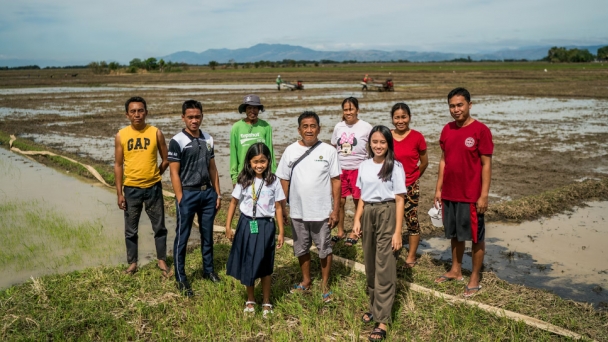
(VAN) Some 2.4 million Filipinos work as rice farmers. But for young people, a rice farmer’s grueling and often impoverished life holds dwindling appeal.
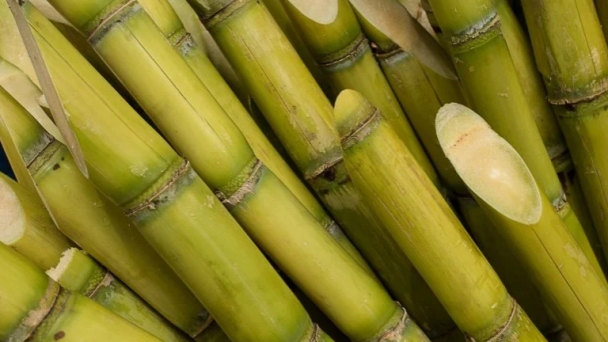
(VAN) Researchers optimized sugarcane’s leaf angle using CRISPR gene editing, enhancing its sunlight absorption.
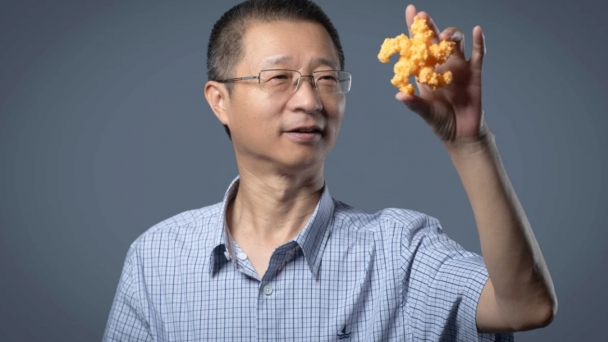
(VAN) The former paper mill worker was part of a global team of researchers whose findings could transform food production yields.
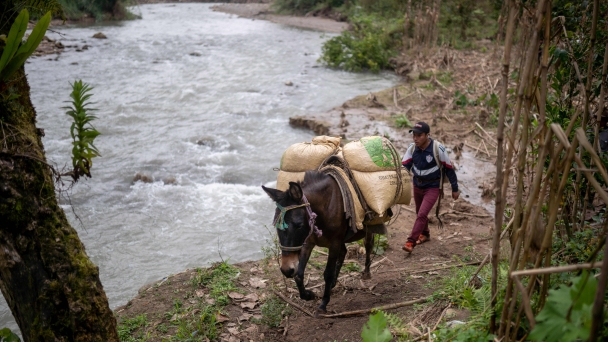
(VAN) Initiatives will deliver greater resilience in face of climate change, biodiversity loss and land degradation.
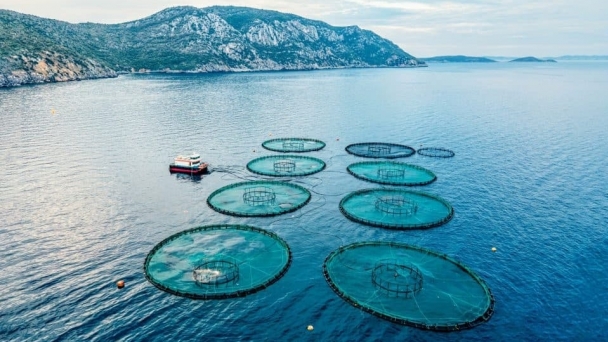
(VAN) For the first time, aquaculture has overtaken wild fisheries in aquatic animal production, marking a significant milestone in global food security.
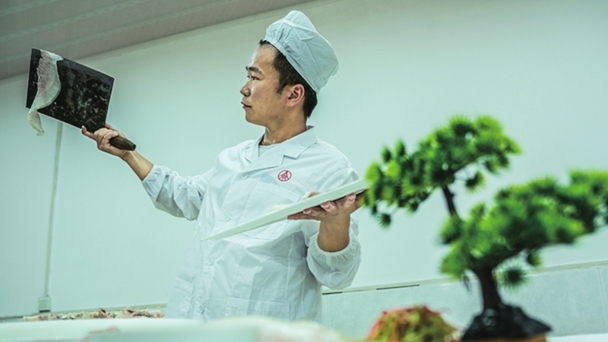
(VAN) China-Europe trade ‘should be, can be mutually beneficial’.